Just last week, I got a message: “I'm curious if you might have any advice for me as to how to support a friend who recently lost a patient due to an elective procedure?”
What an important question!
After a hard patient outcome, there is no one whose compassion matters more -- and therefore no one with greater power to help and heal -- than a trusted colleague or co-worker.
Medicine is a communal enterprise. Unfortunately, the natural, human response to surprising, sad patient outcomes leads many physicians, nurses, and other healers to become isolated just when they need companionship most. That loneliness and confusion is the reason why Thrive and Insight Coaching exist!
In the midst of a storm
As someone who grew up in the beautiful place called Florida, I find that our internal experience of unexpected clinical events reminds me of a hurricane. In the tropics, the very elements which often make for smooth sailing – sun, warm waters, and cool breezes – conspire at times to create a major tropical storm.
Destructive though they may be, hurricanes are fundamentally native to that lush environment.
So it goes with us. Using our human intelligence, skill, and compassion, we often extract wonderful outcomes from the ever-present elements of disease, elaborate systems, and the complex workings of the human organism. Sometimes, however, those very same elements destine us for a storm, replete with hurricane-force winds and heavy rains.
The nature of the storm
Hurricanes can be unpredictable in their course and the damage they may do. Some high-intensity storms make landfall at low tide in a lightly populated area then die down quickly, thereby causing little damage. Other less intense storms come in at high tide then move slowly, creating a huge storm surge amplified by persistently heavy rains which wreak havoc by flooding everything in the storm’s path.
Likewise, the internal weather events which arise in us after a patient’s unexpected outcome can be variable and complicated. Their force and duration may vary from one healer to the next. And this is key -- their emotional intensity may bear little apparent relation to the nature or severity of the precipitating event.
An event which produces a profound response in one provider may not do so for another. Other factors such as prior experiences or a subtle connection between personal and professional life (eg - a patient the age of my child or who reminds me of my grandmother) may contribute to the force of those storms.
Some doctors or nurses even experience a personal Hurricane Katrina, in which they come through things astonishingly well until, for some reason, a levee gives way and everything falls apart.
It is never useful or helpful to judge the power or trajectory of anyone's personal storm, any more than it helps to judge a hurricane. Each storm is what it is and tells its own story. The key to recovery from a major storm -- whether figurative or literal -- is always to assess and respond to the reality on the ground as it exists in the moment. What is most effective is simply to pull together to relieve the damage.
Just because your house wasn’t flooded this time doesn’t mean it won’t be the next. If you want to be of help, get into a boat and retrieve your neighbors from the roof where they are stranded.
Assessing the damages
In addition to creating flooding, a hurricane may rip the roof off, leaving a home’s interior exposed to the elements. Similarly, a patient's unexpected loss often exposes a vulnerable part of us, creating a sort of dual bereavement.
First, there is sadness over the patient's unanticipated loss. Second, there is often grief caused by a loss of self-confidence and a struggle with deep self-doubt. After the fact, a physician may easily question his or her own judgment in performing a given procedure, for example, to begin with.
These doubts may create feelings of guilt, shame, or both. Further, the suffering may run deeper than you might have imagined it could or would. Simply being aware of the potential for these feelings to exist and possibly last for months or years is an excellent place to begin the effort at damage control.
Hurricane recovery assistance
At the center of a hurricane rests the eye, the axis around which high-powered winds revolve. For those who lie directly in the path of a hurricane, the quiet time which elapses while the eye passes over is a calm and welcome respite.
Your job if your friend is in the midst of one of these storms is to channel that calm. Be an axis of welcome. Be the respite. Be the eye.
Offering to listen with compassion and without judgment is likely the most potent thing a fellow healer can do.
Frequently, in the midst of these storms, self-compassion completely breaks down and self-judgment spirals out of control. Avoid exacerbating the tendency toward perfectionism through criticism or speculation. Bring a humble, compassionate presence, trusting that the help you offer today will come back around to you. Be aware that someday you may find yourself wishing that you'd had your own chance to evacuate!
Unless you become concerned for your colleague's safety, honor their story with scrupulous confidentiality. Avoid gossip; it only confuses matters, including legally, and compounds the feeling of shame in those involved. Support their efforts to process the event in the most constructive manner possible.
Listen for as long and as often as the hurricane survivor needs. No legitimate healer ever intends to harm a patient. Rather, these storms are embedded in our work, just like hurricanes are part of living in Florida. The emotional turmoil that follows is the hallmark of a caring physician or nurse confronted with a bad outcome. No one may have told your colleague that all of the sensations I’ve mentioned are the norm. You can give them that information.
When my own hurricane made landfall, nothing was more meaningful than for trusted friends and mentors to remind me that they considered me an excellent physician. At that moment, many healers forget. If you hold your colleague in high regard -- if you see their love for what they do -- make sure they know it. There will never be a time when they need to hear it more.
Thanks to the physician who gave permission to share her question in this forum. I’d love to hear your thoughts on the support that meant the most to you, either here in the comments or via this Contact Form.
Looking for support yourself? Explore Thrive: Insight Coaching here.
I am available for public speaking on this topic and many others related to physician wellness and burnout around unexpected outcomes and malpractice litigation. Explore my public speaking here.





